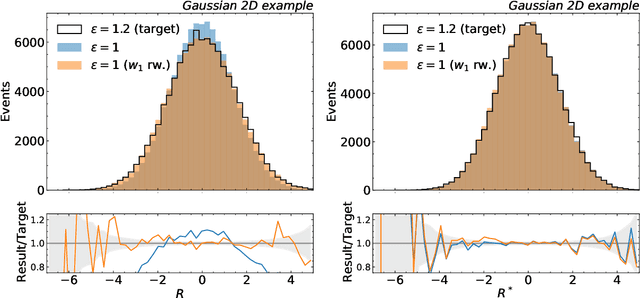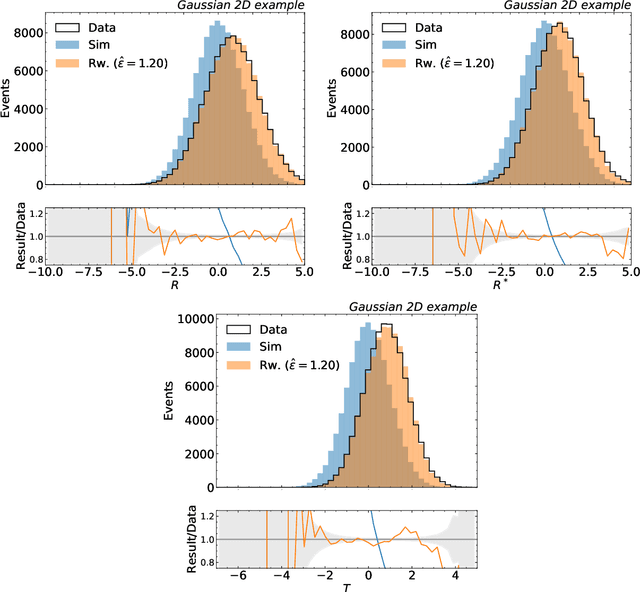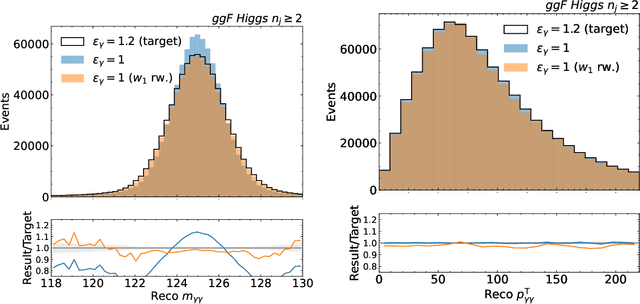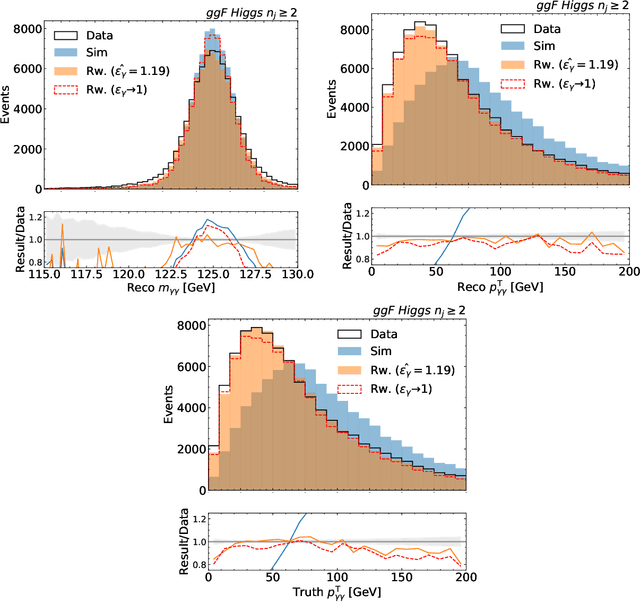Unbinned Profiled Unfolding
Paper and Code
Feb 20, 2023



Unfolding is an important procedure in particle physics experiments which corrects for detector effects and provides differential cross section measurements that can be used for a number of downstream tasks, such as extracting fundamental physics parameters. Traditionally, unfolding is done by discretizing the target phase space into a finite number of bins and is limited in the number of unfolded variables. Recently, there have been a number of proposals to perform unbinned unfolding with machine learning. However, none of these methods (like most unfolding methods) allow for simultaneously constraining (profiling) nuisance parameters. We propose a new machine learning-based unfolding method that results in an unbinned differential cross section and can profile nuisance parameters. The machine learning loss function is the full likelihood function, based on binned inputs at detector-level. We first demonstrate the method with simple Gaussian examples and then show the impact on a simulated Higgs boson cross section measurement.
 Add to Chrome
Add to Chrome Add to Firefox
Add to Firefox Add to Edge
Add to Edge